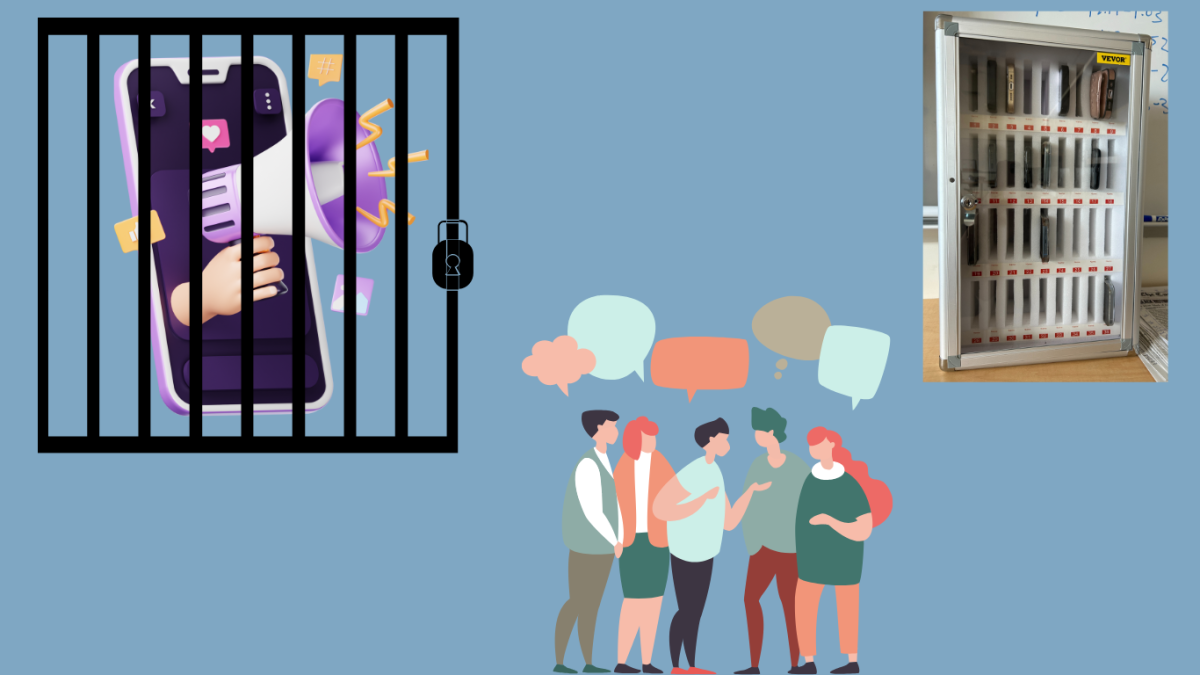The introduction of the new phone policy has forced students to adapt to not having their phones for most of the day. I found myself worrying about being able to contact my parents if something were to happen. I also found my social media use going up because there are more distractions at home.
I wanted to know how other Lincoln students were responding to the phone policy so I created a survey. 153 Lincoln students from grades 9-12 took the survey, which asked them questions about the policy. Out of the 127 students who answered the question “How often does the new phone policy make you feel anxious or depressed,” 69.3% said that the new phone policy did not impact how often they felt anxious or depressed, while 17.3% said they felt anxious or depressed more often.
Junior Isabella Mercado shared her opinion on the mental health impact of the phone policy.
“I do think it could have a negative impact … People could be feeling a lot more stress or anxiety, not being able to connect with their parents or news in general, or [not] being notified about things as fast,” said Mercado. “I know teachers have made the argument that if something happens they can call the office or if something happens at school the parents will get notified quickly, but it really just cannot happen as instantaneously as before.”
13 out of the 87 students who commented at the end of the survey agreed with Mercado that not being able to contact their parents as quickly has caused them to feel stressed.
Junior Kirin Cowell-Shah likes the changes he’s seen in the Lincoln community due to the phone policy.
“Instead of half of what [teachers are] saying [is] ‘get off your phone’, now we can actually talk about class material. I feel like in the first week [of school] there was a lot of push back and … people were complaining, but now I really don’t hear anything,” said Cowell-Shah. “I have seen during lunch … less people being on their own on their phone, which is really nice. Obviously, we’re allowed to have phones during lunch, but I think the normalization of not always being on your phone has made people more social during lunch and other opportunities like that. It’s refreshing.”
According to the survey, 58.2% of the 153 people said that the new policy has not impacted their phone use at home and 34.6% of people said that they use their phones more often at home.
Mercado believes that the new policy has increased her phone use at home because she isn’t able to use it during the day.
“If anything, I use my phone after school more because I come home to notifications from people, emails that I haven’t checked at school, or even social media notifications. So if anything, after practice when I’m at home, I’m catching up on the time that I can’t check it when I’m at school,” said Mercado.
Senior Gaby Hampsey agreed that when the phone policy was first implemented her phone use went up, but she recently made changes to address this.
“During the first couple weeks of school, I definitely think [my phone use went up] since I wasn’t really able to check it at school, then when I got home I would immediately just look at my phone and spend a really long time scrolling,” said Hampsey. “I, a couple of days ago, deleted Instagram from my phone. I had to do that at the end of last year too because I was wasting too much time on there. I just had to not have access to it, so that I can get more work done.”

